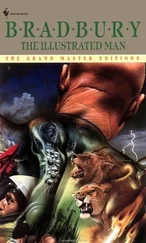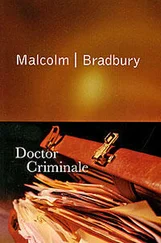Malcolm Bradbury - The History Man
Здесь есть возможность читать онлайн «Malcolm Bradbury - The History Man» весь текст электронной книги совершенно бесплатно (целиком полную версию без сокращений). В некоторых случаях можно слушать аудио, скачать через торрент в формате fb2 и присутствует краткое содержание. Жанр: Современная проза, на английском языке. Описание произведения, (предисловие) а так же отзывы посетителей доступны на портале библиотеки ЛибКат.
- Название:The History Man
- Автор:
- Жанр:
- Год:неизвестен
- ISBN:нет данных
- Рейтинг книги:3 / 5. Голосов: 1
-
Избранное:Добавить в избранное
- Отзывы:
-
Ваша оценка:
- 60
- 1
- 2
- 3
- 4
- 5
The History Man: краткое содержание, описание и аннотация
Предлагаем к чтению аннотацию, описание, краткое содержание или предисловие (зависит от того, что написал сам автор книги «The History Man»). Если вы не нашли необходимую информацию о книге — напишите в комментариях, мы постараемся отыскать её.
The History Man — читать онлайн бесплатно полную книгу (весь текст) целиком
Ниже представлен текст книги, разбитый по страницам. Система сохранения места последней прочитанной страницы, позволяет с удобством читать онлайн бесплатно книгу «The History Man», без необходимости каждый раз заново искать на чём Вы остановились. Поставьте закладку, и сможете в любой момент перейти на страницу, на которой закончили чтение.
Интервал:
Закладка:
They also both started having small affairs. Howard tried the wives of his friends, with what he thought of as the Hamid strategy, and was surprised to find how available many of them were, and how it improved his confidence in himself, and his social courage. Barbara began taking her pleasures at the parties they went to, slipping upstairs to the bedroom with someone around midnight, and then returning downstairs for the early-morning action, when dancing started or the pot started circulating, not wanting to miss a thing. They felt the strain, and some of the other relationships they formed seemed tempting, worth enlarging; they talked quite often about separating, feeling now that they were really bad for each other, and that the only real answer was a new start. None of their other relationships really became permanent, however. Once Barbara went and stayed for a week with some friends, the Beamishes, Henry Beamish being another young lecturer in the department; she took the television set with her, and began looking around in Leeds for a flat of her own. But their friends were all people who had psychological insights, and so they explained Howard's problems to Barbara, and Barbara's problems to Howard, and this made them seem quite interesting to each other again. So they ended up back together, at the end of the week, on a new alignment. This all had a rapid consequence; Barbara got pregnant. 'Oh, God, the primitive techniques we used then,' says Barbara, 'we were playing Russian roulette.' Barbara quite enjoyed the pregnancy, and she got massively fat. Her big peasant bosom swelled and she carried her enormous bump buoyantly in front of her. She went to natural childbirth classes, and Howard came along too; he did the exercises down on the floor along with her, sympathetically pushing when the nurse said push. When Barbara went into Leeds Infirmary, Howard insisted on being present. Indeed when the day came at last, he decided not to cancel his class, but to take the group along and see the birth, examining the problems of the National Health Service and the conditions of maternity care. The sister was strict and uncooperative, so the class waited out in the grounds, peering at windows, while Barbara delivered, by the Lamaze method, with Howard present, giving instructions and encouragement through a white mask. Then it was all over. Barbara sweated and the veins in her eyeballs stood out red, while Howard stared with intense and profound curiosity at the mystery of life, encapsulated there between his wife's legs, and contemplated the conditions and determinants, the Marx and the Freud, the history and the sex, that led to this most extraordinary of all outcomes.
Barbara had not at first welcomed the pregnancy, for she was enjoying things too much; but in the end it was a kind of victory for her. Howard had pushed sympathetically on the floor of the clinic, but in the end he had produced nothing; Barbara had made the ultimate statement, published in the ultimate way. Thereafter Howard had a lot of baby-minding to do, and he often slept in the day, in his chair in the room he had at the university, so as to be sure to be awake and aware for the two-o'clock feeds. He did his part, but all the same Barbara claimed to be struggling in the maternal yoke, which denied as well as satisfied, and so she made him pay her an economic salary for her useful social role as a wife and a mother, as proof that she was not second-class. But, after two months spent in the full-time company of the baby, she began to feel that it was time to realize herself as a fully-fledged economic unit. It was somehow only when an achievement was tested in the open, competitive market that it was a real achievement, a full mode of being, an existential act; she had started, in these matters, to acquire vocabulary from Howard. What she did was to get a neighbour to come in and mind the child, while she did part-time jobs on public opinion surveys and in market research, arguing with housewives in the Leeds back-to-backs about how important their views were on detergents and decimal currency, Rhodesia, abortion, and Coronation Street. She gradually became persuaded that market research was a community service, a form of grass-roots expressionism, of political action, and that she was very good at it. Altogether over this stage she became very bright and contented. Howard, correspondingly, came to feel very depressed. He was getting very tired, and doubted the rewards that were coming to him from his close, intense relationship with the small fleshly creature that was his baby. He liked the child, but not as much as he was being asked to; he actually suspected Barbara of neglect. But the trouble, for both of them, was that they had by now become busy people; there was so much for each of them to do. Now he acquired a bewildered expression, and a faint air of defeat. But he let his hair grow very long, and began to push people around intellectually at parties. He drank more, and looked sad. Gradually he found, to his surprise, that he was earning sympathy and regard; his recent troubles had impressed all the people he knew a good deal, and he was, with his accumulating reputation for having a vigorous and even dangerous wife, and an affair problem, and a baby problem, for the first time being considered as a very seriously interesting person.
It was at this time that the Kirks first started telling, to friends and acquaintances and utter strangers, their story. They presented it as the exemplary case of the Kirks, an instructive public matter, the tale of two bewildered people who had failed themselves and then suddenly grown. It was an attractive and popular story for the times, and it went through many refinements. The earlier tellings had concentrated on the liberation plot; the cramped lives, the affair, the running around naked on the moors, the explosion of consciousness and new political awareness. But after a while, there were certain elements of scepticism that needed to be introduced for probability's sake, not utterly disconfirming the tale of a couple moving buoyantly, self-realizingly, through the exploding consciousness of man in history, perhaps even complicating and improving it. For there were severe ambiguities and dark places in their relationship. The way Howard explained this, to himself and to a few others, was that they had moved from a consensus model of marriage, the usual model of marriage, which is generally taken as an ultimate consensus, wherein conflict is generated but ultimately reconciled with the famous kiss, to a conflict model, in which interests were starkly defined, and ultimate resolution must depend on violence or the defeat of one of the parties. What Howard was out to articulate was the suspicion, which could of course have been paranoid, that Barbara was out to destroy him. She of course denied this, when they talked about it; however, as Howard kept telling her, the question could not be posed at the conscious, but had to reckon with the unconscious, level. One thing was certainly true; Barbara, because she was using her mind more, was getting brighter. She had a shrewd, bitter intelligence, a strong nature, and more gift for feeling than he had. She also had the subtle arts of attack, and could use them on him well; there were times when Howard wondered whether he could survive them.
But by now Howard was Dr Kirk; he had finished off his thesis, and been awarded his PhD for his long labours. Now the focus of his attention could change; he had been at work on a book, an argumentative book, about cultural and sexual change, which urged, as you might expect, that there had been a total restructuring of sexual mores in Britain, that sexual roles had been totally reassigned, and that the use of the traditional concepts of 'man' and 'woman', to designate stable cultural entities, was irrelevant. 'We need new names for these genitally distinct types of persons,' it said. Howard wrote the book secretively, in his office, partly because it was yet another telling of the exemplary Kirk story, and so might bore Barbara if she read it, but even more he was, like Barbara with the baby, or a nation with a new energy-source, aware that he had possession of a powerful weapon in the power politics, the dialectics and strategies, of his marriage, his own home-made yet universal battlefield. But Barbara came into his office one day, while he was elsewhere in the building, teaching a class. She sat at his desk, read the letters that lay on it, the comments that he had written on the ends of his student essays, the typescript of the book. She began to penetrate it; by the time he came back from his class she had a view of it. 'Have you been writing this?' she asked. 'Why not?' asked Howard, looking at her as she sat in his desk chair, while he sat in the chair he put his students in for tutorials. 'It's us, isn't it?' said Barbara, 'it's also revealingly you.'
Читать дальшеИнтервал:
Закладка:
Похожие книги на «The History Man»
Представляем Вашему вниманию похожие книги на «The History Man» списком для выбора. Мы отобрали схожую по названию и смыслу литературу в надежде предоставить читателям больше вариантов отыскать новые, интересные, ещё непрочитанные произведения.
Обсуждение, отзывы о книге «The History Man» и просто собственные мнения читателей. Оставьте ваши комментарии, напишите, что Вы думаете о произведении, его смысле или главных героях. Укажите что конкретно понравилось, а что нет, и почему Вы так считаете.











